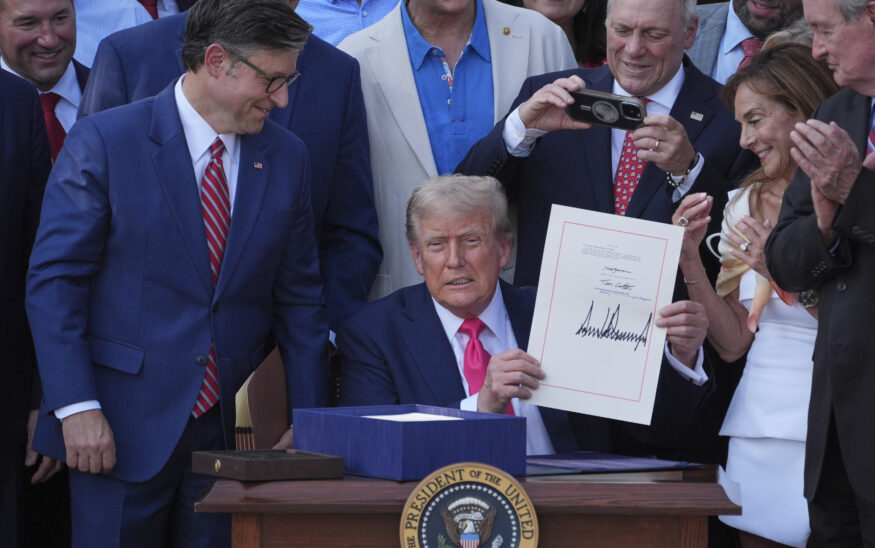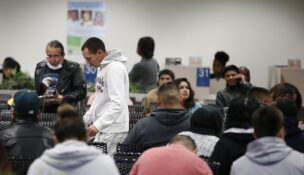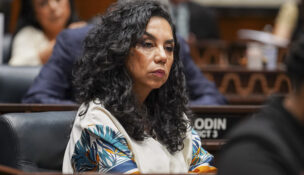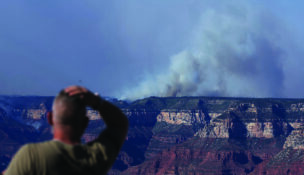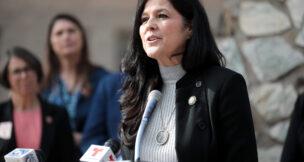Arizona agencies request millions to fill the gaps left by federal funding cuts
Reagan Priest Arizona Capitol Times//September 20, 2025//
Arizona agencies request millions to fill the gaps left by federal funding cuts
Reagan Priest Arizona Capitol Times//September 20, 2025//
Key Points:
-
State agencies have submitted their budget requests for fiscal year 2027, which begins July 1, 2026
-
Agencies request millions from Arizona’s general fund to address Medicaid and SNAP cuts
-
Governor will provide lawmakers with her proposed budget in January
Budget requests submitted by Arizona’s state agencies are shedding more light on what it will cost the state to conform to federal spending and tax cuts included in President Donald Trump’s “One Big Beautiful Bill.”
Gov. Katie Hobbs and public health advocates have been warning that cuts to Medicaid, the Supplemental Nutrition Assistance Program and other federal programs would impact both the lives of Arizonans and the state budget. Now, state agencies are saying it will cost hundreds of millions of dollars in the next few years to prepare for those changes, which are set to take effect in 2027 and 2028.
According to the Arizona Health Care Cost Containment System, it will cost $71.4 million in fiscal year 2027 to implement the changes to Medicaid required by the One Big Beautiful Bill, known as H.R. 1. $18.78 million of that cost will come from the state’s general fund if AHCCCS’s budget request is included in next year’s budget.
“H.R. 1 will represent a significant expansion in the cost burden on the state of Arizona and in particular, the state general fund,” the AHCCCS budget request states. “The state will incur significant increases in administrative expenses and will be asked to make tough policy decisions as providers’ revenues decrease while uncompensated care increases.”
Hobbs’ spokesman Christian Slater said the Governor’s Office will not comment on state agency budget requests, but previously told the Arizona Capitol Times that next year’s budget would be challenging “due to the reckless actions of the Trump administration.”
“H.R. 1 slashes funding for critical services Arizonans rely on while overloading the state with bureaucracy and red tape that will cost significant taxpayer dollars,” Slater said in a statement in August.
In addition to the significant cost to AHCCCS, the Department of Economic Security is estimating it will cost $87.7 million from the general fund in FY2027 to adjust eligibility determinations for both Medicaid and SNAP. DES works in tandem with AHCCCS to administer the state’s Medicaid program and is charged with administering SNAP.
“SNAP and Medicaid program operations will be disrupted and potentially not be possible at all if these costs are not funded with state dollars,” DES’ budget request states.
DES is also requesting $18.2 million in supplemental funding for the current fiscal year, which began July 1. The supplemental will be used to manage increased workloads caused by changes to SNAP’s work requirements and H.R. 1’s provisions that shift payment error costs from the federal government to states.
AHCCCS’ budget request notes it will need 92 full-time equivalent staff positions in FY2027 to implement the changes, while DES will need 228 full-time equivalent staff positions. AHCCCS is also estimating that an additional $5.3 million, including $1.6 million from the general fund, will be needed in fiscal year 2028, when some of the Medicaid changes will be in effect.
Other agencies are also requesting general fund dollars to address other federal funding cuts and dwindling Covid recovery dollars in various areas, from foster care and state laboratory services to Clean Air Act compliance and border operations.
The Department of Health Services is asking for around $2 million from the general fund to backfill the loss of federal funds that supported operations at the Arizona State Public Health Laboratory. The laboratory investigates infectious disease outbreaks, conducts newborn illness screenings and tests for communicable diseases in drinking and surface waters, among other services.
ADHS provides laboratory services to cities, counties, school districts and more, but is prohibited by statute from charging for those laboratory services. ADHS’ budget request said the state funding will ensure those services are provided without interruption during a “very unstable federal funding climate.”
The Department of Child Services is asking for $24.6 million in general fund money, in part to address federal changes to eligibility for Title IV-E, a program that provides funds to assist with the cost of foster care maintenance.
The Department of Environmental Quality said in its budget request that it will not be able to meet requirements of the federal Clean Air Act if it does not get $3.9 million from the general fund in FY2027. Funding for grants related to the Clean Air Act were among those cut by H.R. 1.
And the Department of Homeland Security is requesting nearly $800,000 from the general fund annually to fund the Border Coordination Office, which was created by Hobbs in 2023 using American Rescue Plan Act funding. According to ADOHS’s budget request, that funding will run out in September 2026.
Hobbs’ office will use the requests from state agencies to create her executive budget proposal, which she will give to the Legislature in January to kick off the 2026 budget negotiations. Any request for funding from the agencies must be approved by the Legislature and Hobbs.

